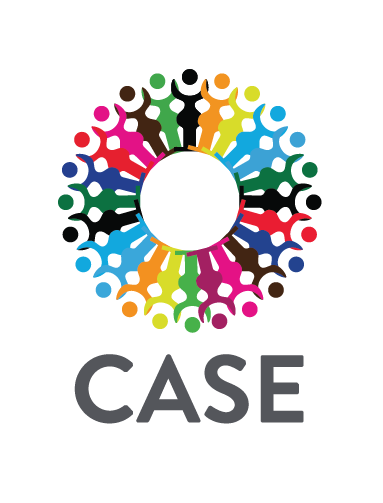Spotlight - Jonathan Percival
By Julia Frid, Networking & Partnerships Coordinator, CASE-MCQ
This text is based on a conversation with Jonathan, Principal of Three Rivers Academy High School.
Few individuals can have a greater impact on a minority-language community than the principal of a minority-language school.
In the predominantly French-speaking regions of Mauricie and Centre-du-Québec, the English community’s historical roots continue to deepen. There are four English schools in the area, with the largest being Three Rivers Academy in Trois-Rivières, formerly known as St-Patrick’s High School.
Jonathan Percival, who became Principal of Three Rivers Academy in 2022, brings leadership and experience to his role after three years as Vice-Principal at Mauricie English Elementary School.
A tall man with a gentle voice, Jonathan is not originally from Canada. He hails from England and, like so many others, moved to Quebec to be with his “chérie”.
I had the opportunity to sit down with Jonathan to hear his story of moving to Canada, integrating into a minority, English-speaking community, and now leading a school with over 300 students during this unique period in history.
Jonathan arrived in Quebec City in 2010, starting his new life as an immigrant. His French was more advanced than most newcomers, making his transition and integration smoother. He settled in comfortably, finding healthcare providers through his wife’s network. In retrospect, Jonathan’s feels his basic knowledge of French allowed him to access services with relative ease, and feels the process would have been more challenging without his French language skills.
Career-wise, Jonathan took calculated and careful steps to pass the necessary exams, eventually gaining a position with the French school board to begin his teaching career in Canada.
Now, as Principal in Trois-Rivières, where he and his wife have made their home, Jonathan has witnessed many changes. He interacts daily with individuals from a variety of English-speaking backgrounds. “Schools have traditionally been the hub that brings every demographic together,” Jonathan says. “From young children and families to teachers, youth, seniors, and graduates… everyone comes together, creating a mosaic community.” This community has been shaped by the experiences of all who have passed through the school’s doors, whether as students, staff, or visitors.
Jonathan is now welcoming an ever-growing population of newcomers to the region, including interprovincial, continental, and even intercontinental arrivals. He has even noticed an increase in Indigenous families moving to the area from northern regions of Quebec. These shifts have created new needs, which led our conversation to CASE—Centre for Access to Services in English. I was curious to know Jonathan’s thoughts on this organization, of which I am a part.
Speaking candidly, Jonathan acknowledged the important role CASE plays in the community, particularly for his school. While schools are vital to the overall health of the English-speaking community, they have limitations in addressing broader issues, such as political concerns or health services, due to their inherent neutrality. It is in these areas that CASE and similar organizations throughout Quebec are essential. He believes organizations like CASE are taking a leading role in ensuring that vital services are available to the English-speaking population in all regions of Quebec.
Jonathan also reflected on the importance of accurate health information, particularly during the recent pandemic. Though the worst of the pandemic is behind us, the consequences are still being felt, particularly in terms of isolation and mental health struggles that affect all ages. He stressed that organizations dedicated to the needs of minority-language communities are crucial in addressing these ongoing challenges.
“Canada is an officially bilingual country,” Jonathan notes. “English speakers are an integral part of its history and society. They deserve access to services, and CASE plays a significant role in ensuring they receive them.”
As we wrapped up our conversation, we discussed a key aspect of community life that both of our organizations value: volunteers. I asked Jonathan what role he believed volunteers play in the community. He quickly responded, noting that volunteers are essential for maintaining the health of the community. In turn, a healthy community supports and fosters more volunteers. He emphasized that people need to feel they belong and are needed before they will step forward to contribute. Once that sense of comfort is established, volunteers begin to form a multi-generational support system, with roles for everyone, from young children to seniors. This sentiment resonates with CASE, which, like Three Rivers Academy, is always seeking ways to make individuals feel welcome and valued, especially in our volunteer efforts.
Through my conversation with Jonathan, I was able to gain insight into the needs, perceptions, and future vision for the English-speaking community. We are fortunate to have such a kind and welcoming soul in our region—someone who has not only integrated into Quebec society but also given back by sharing his language skills, teaching expertise, and leadership talents.
Thank you, Jonathan, for all you do. At CASE, we look forward to continuing our collaborative work to ensure that both current and future generations continue to thrive in our beautiful region.

